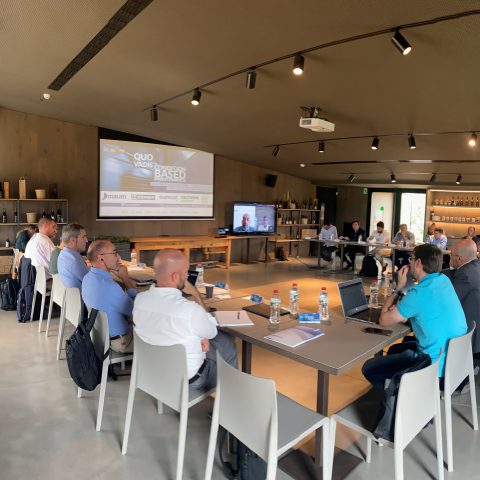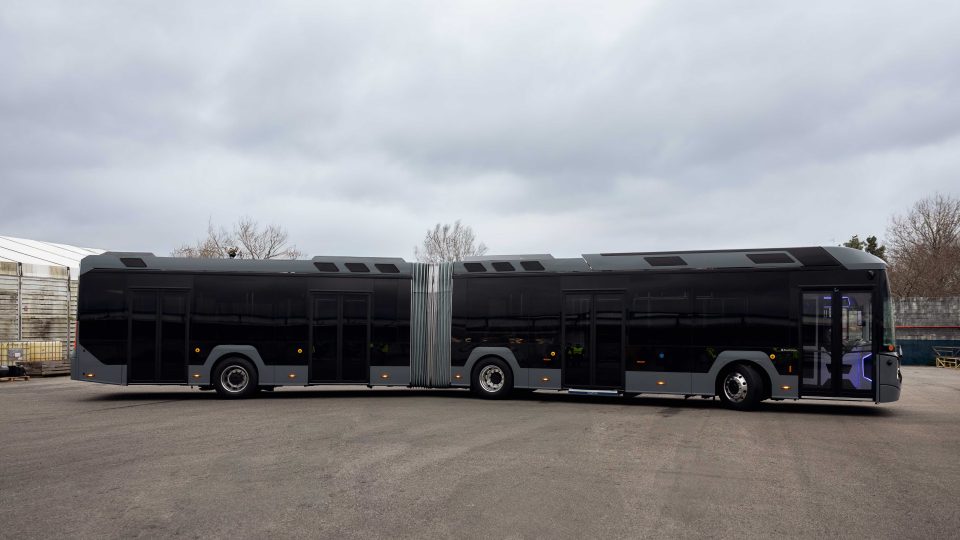Masats on predictive maintenance: «Pilots on buses show it can increase vehicle availability by 50%»
Spanish doors and ramps supplier Masats hosted the Quo Vadis CBM workshop on 20 October organised by IN-MOVE by Railgrup and the members of the #CBM Working Group, of which Masats is a member. The workshop allowed to share efforts and to know the vision of operators, constructors and components industry, in this field of […]

Spanish doors and ramps supplier Masats hosted the Quo Vadis CBM workshop on 20 October organised by IN-MOVE by Railgrup and the members of the #CBM Working Group, of which Masats is a member.
The workshop allowed to share efforts and to know the vision of operators, constructors and components industry, in this field of Predictive Maintenance. CBM is a system based on sensors that monitor the state of the components. The Operator is notified when certain conditions occur, which allows maintenance to be performed on the vehicle based on its condition, resulting in optimised life cycle cost, and increases service availability by avoiding unexpected downtime.
Masats and predictive maintenance
For this, it is very important to secure data between suppliers and operators, to collect data that provides value for analysis thanks to the expert knowledge of system manufacturers, and to analyse this large amount of data, which is done thanks to innovations in the field of artificial intelligence.
Masats had the opportunity to present its work being carried out in terms of predictive maintenance of door and ramp systems.
Firstly, pilot tests are being carried out on buses in Madrid, Barcelona and Singapore, with very encouraging forecasts, the supplier says. With the analysis carried out to date, the potential of the system has been measured, and “based on the data collected, it is expected that predictive systems can increase vehicle availability by 50%, reduce life cycle costs by 45% (reducing incidents and unwanted vehicle downtime, and reducing the preventive maintenance plan), and improve reliability by 150%“, Masats states.
Predictive maintenance allows remote diagnosis of the equipment, alerting the operator before a malfunction occurs that affects service. It makes it possible to reduce the frequency of preventive checks and to plan vehicle maintenance, eliminating forced downtime. This project has also made it possible to incorporate improvements in the design of Masats systems, by having real data from the field; and it has also allowed for improved integration with the vehicle.
Some of the main conclusions reached during the conference were, concludes the company, “The importance of cultural change for people to believe in and use these new technologies and failure prediction systems. The importance of system manufacturers, such as Masats, who, based on their expert knowledge of the product, are the only ones capable of creating predictive alarms, so that manufacturers and operators can integrate them into their systems. The need to converge RAMS analysis with predictive models, to arrive at PHM (Prognostics and Health Management). Finally, it is vital for operators to be able to audit predictive models, for operators to trust the system, for which it is very important to start from RAMS analysis”.








